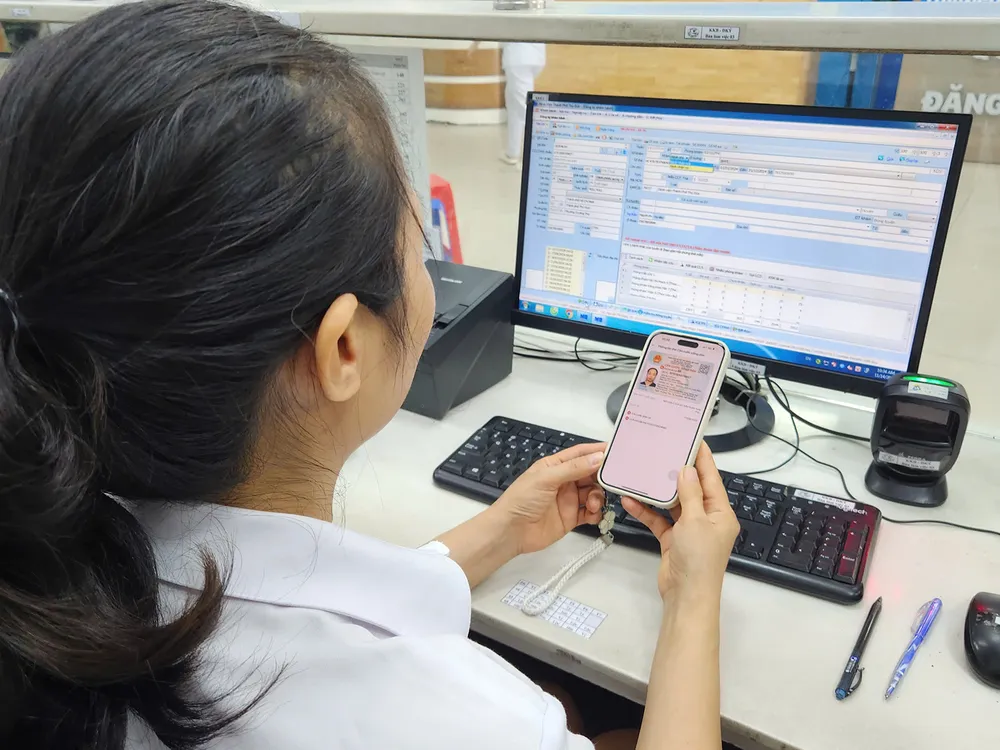
Many difficulties in implementation
On September 26, the Ho Chi Minh City Department of Health held a conference to announce the results of the implementation of the BAĐT and standardization of the city's health sector's data warehouse. According to Associate Professor, Dr. Tang Chi Thuong, Director of the Ho Chi Minh City Department of Health, this is an important milestone in the digital transformation journey, contributing to modernizing management, reducing administrative procedures and improving the quality of medical examination and treatment for people.
With a scale of 164 hospitals, 38 regional health centers, 168 commune health stations and 296 stations, 10,627 clinics, the synchronous implementation of BAĐT is a huge challenge. However, in the past time, the Department of Health of Ho Chi Minh City has regularly urged, monitored, and ensured the progress and synchronization of implementation throughout the system. Up to now, 153/164 hospitals in Ho Chi Minh City have implemented BAĐT, reaching a rate of more than 93%. Of which, the public hospital sector has achieved a rate of 100% putting BAĐT into operation according to the roadmap; 13/14 hospitals of ministries and branches located in the area have also implemented it. In the non-public sector, despite the large number of facilities and diverse scales, 80/90 hospitals still implement BAĐT.
Associate Professor, Doctor, Doctor Tang Chi Thuong said that for public hospitals facing resource difficulties, the Ho Chi Minh City Department of Health has piloted a solution using a shared BAĐT platform. This is considered a “safety net” for hospitals, helping to synchronize data, connect with the city’s medical data warehouse and form a tool for managing, monitoring and analyzing medical data. This platform not only serves each individual hospital but also creates a comprehensive picture of the community health situation, helping to plan policies and forecast future medical trends.
Although it brings many practical benefits, such as shortening the time for medical examination and treatment, reducing costs and administrative paperwork, increasing transparency in management and improving the patient experience, the implementation of BAĐT still faces many difficulties. This reality requires policies to help resolve the gap in technology infrastructure between facilities and supplement IT human resources. The Ho Chi Minh City Department of Health recommends that the operating costs of BAĐT be calculated correctly and fully into hospital fees. In fact, most hospitals choose the solution of hiring IT services to optimize costs when implementing BAĐT.
Building digital healthcare and international integration
Speaking at the conference, Mr. Nguyen Phuoc Loc, Deputy Secretary of the Ho Chi Minh City Party Committee, Chairman of the Vietnam Fatherland Front Committee of Ho Chi Minh City, praised and highly appreciated the city's health sector for overcoming many challenges and synchronously implementing the Digital Transformation. This result has the active participation of departments and branches, focusing on the City Digital Transformation Center.
He reiterated and thoroughly grasped the direction of General Secretary To Lam at the National Conference on the implementation of 4 Resolutions of the Politburo : Resolution No. 59-NQ/TW on international integration in the new situation; Resolution No. 70-NQ/TW on ensuring national energy security until 2030, with a vision to 2045; Resolution No. 71-NQ/TW on breakthroughs in education and training development; Resolution No. 72-NQ/TW on a number of breakthrough solutions to strengthen the protection, care and improvement of people's health. The consistent spirit is to quickly shift from "issuing policies" to "implementation management", taking people and businesses as the center, taking practical effectiveness as the measure. Each agency, organization and individual is responsible for turning the content of the Resolutions into daily work, into specific action programs, with resources, deadlines, measurement indicators, monitoring and accountability. General Secretary To Lam requested the entire political system to thoroughly grasp and strictly implement a number of principles during the implementation process. Those principles are: Five consistencies: consistency in politics, law, data, resource allocation and communication; Three publicities: public about goals, progress and results; Three early: early completion of institutions, early launch of key projects, early allocation of capital; Five clear: clear work, clear people, clear responsibilities, clear time, clear results. Implement the contents of the resolution as soon as possible at all levels.
According to comrade Nguyen Phuoc Loc, Resolution No. 72-NQ/TW emphasized that prevention is the key, the grassroots is the foundation, the people are the center, the goal is to increase healthy life expectancy, reduce payments for patients, digitize the system, strengthen grassroots healthcare, improve service quality and patient satisfaction. In the 9 groups of solutions that need to be focused on, there are solutions on digital transformation of healthcare, electronic health records for the whole population, electronic prescriptions, remote medical examination and treatment linked to a shared data warehouse. Therefore, with the announcement of BAĐT and integration of a shared data warehouse, he commented that the Ho Chi Minh City health sector is one of the leading local organizations in concretizing the implementation of Resolution No. 72-NQ/TW.
Comrade Nguyen Phuoc Loc suggested that the Ho Chi Minh City Department of Health and hospitals in the coming time need to continue to review the shortcomings and difficulties, consult with the city leaders to propose to the Ministry of Health to remove them. At the same time, continue to promote the establishment of electronic health records for all elderly people in the area, expanding to children and women, towards 100% of people having electronic health records. Standardize and perfect the shared data warehouse, ensure connectivity, security and safety; in which promote the application of artificial intelligence, gradually moving towards digital health, smart health to serve the goal of building Ho Chi Minh City as a livable city with sustainable development.
Comrade Nguyen Phuoc Loc acknowledged that the Ho Chi Minh City Department of Health has created a combined strength of the entire health sector, mobilizing resources from the central health sector, ministries, branches, and non-public health sectors to participate in the common mission of serving, caring for, protecting, and improving people's health. He highly appreciated the Ho Chi Minh City Digital Transformation Center for coordinating with the health sector to design an architecture using the city's common data sharing platform.
Source: https://www.sggp.org.vn/y-te-cong-lap-tphcm-ve-dich-benh-an-dien-tu-post814962.html


![[Photo] Chu Noodles - the essence of rice and sunshine](https://vphoto.vietnam.vn/thumb/1200x675/vietnam/resource/IMAGE/2025/11/11/1762846220477_ndo_tl_7-jpg.webp)



![[Photo] Prime Minister Pham Minh Chinh receives Lao Minister of Labor and Welfare Phosay Sayasone](https://vphoto.vietnam.vn/thumb/1200x675/vietnam/resource/IMAGE/2025/11/11/1762872028311_dsc-2246-jpg.webp)

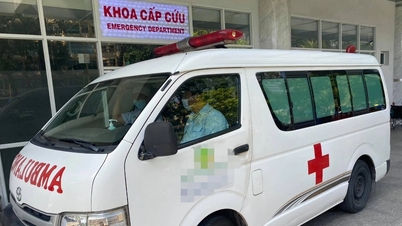




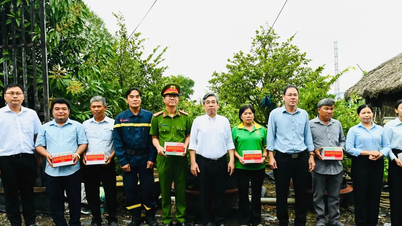
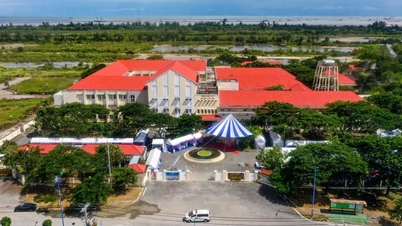

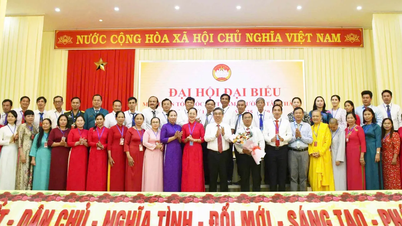


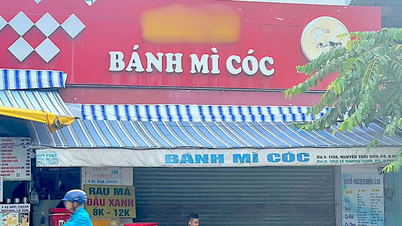







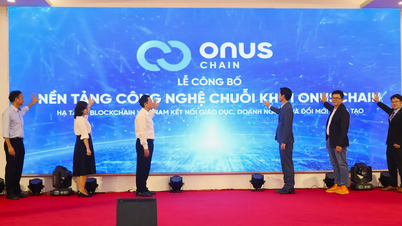

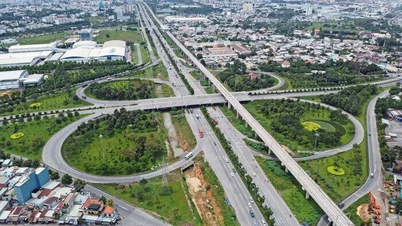






















































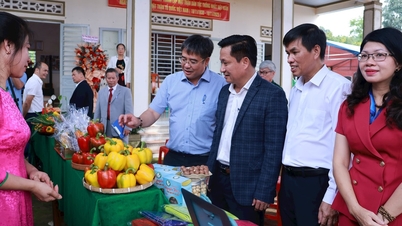
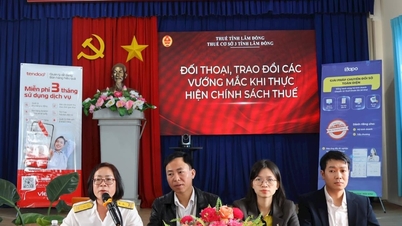









![Dong Nai OCOP transition: [Article 3] Linking tourism with OCOP product consumption](https://vphoto.vietnam.vn/thumb/402x226/vietnam/resource/IMAGE/2025/11/10/1762739199309_1324-2740-7_n-162543_981.jpeg)








Comment (0)